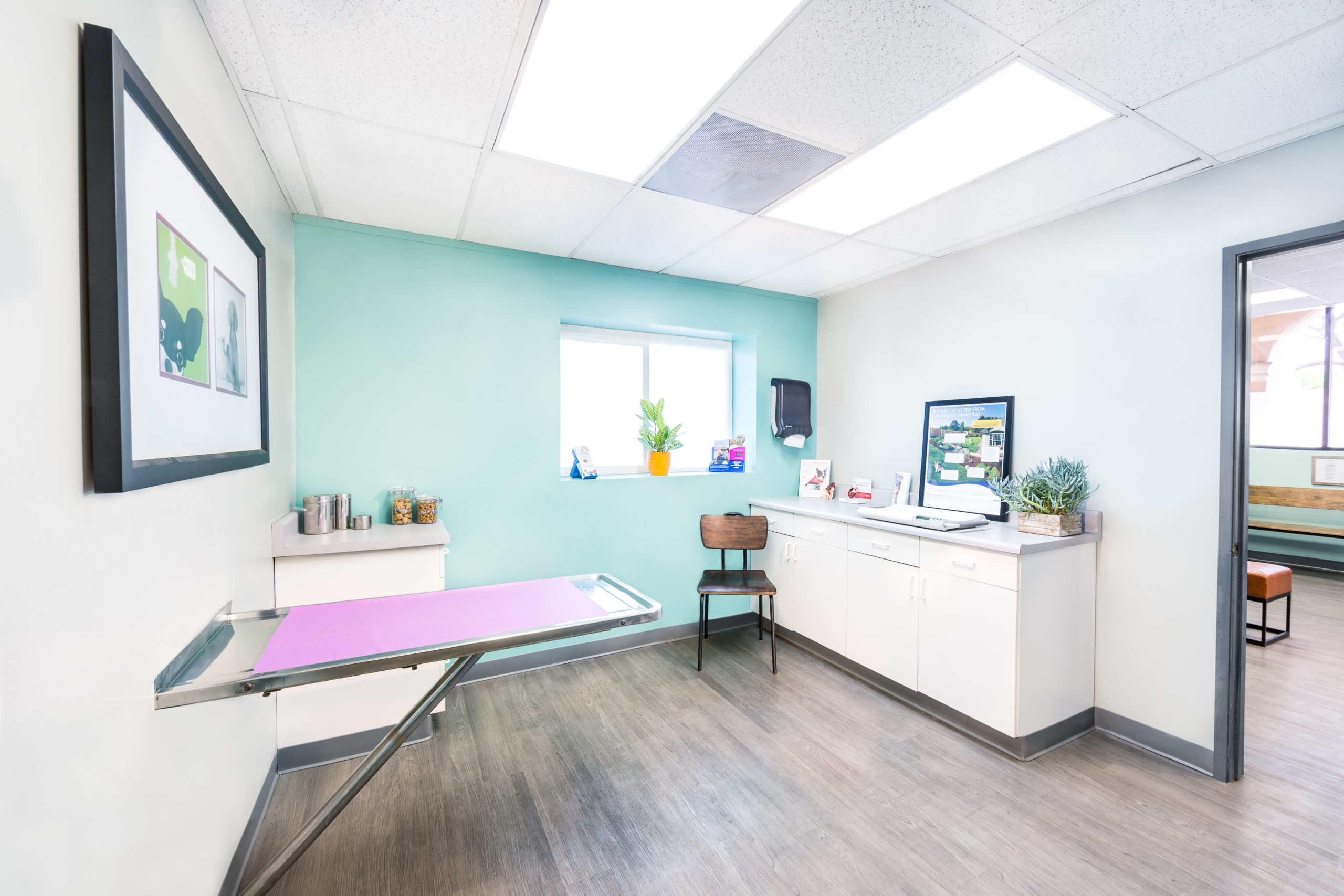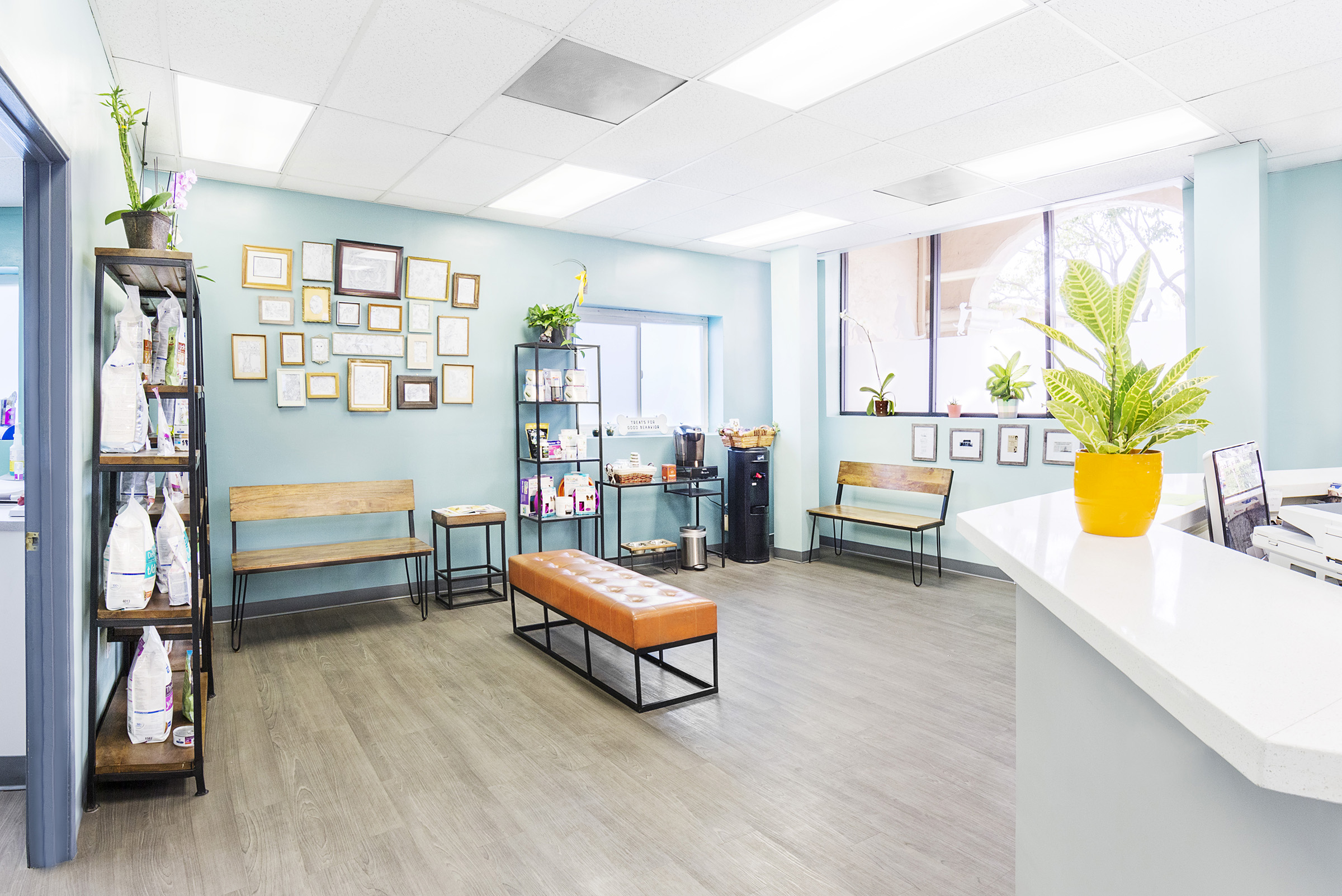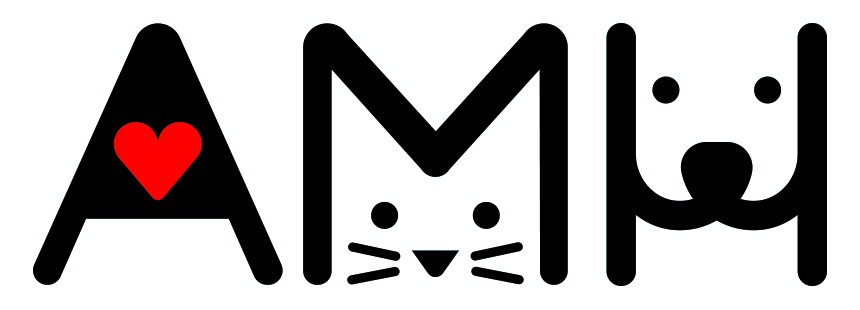Surgery


General Surgery Information to Assist You in Preparation
For scheduled surgeries, we perform a pre-surgical visit to go over general surgical information which includes:
- Physical exam
- Blood work to minimize anesthetic risks
- Updating vaccinations if necessary
- Discussing the surgical procedure
- Answering any questions you may have about the procedure
- Discussing any possible complications that may result
- Provide and review a detailed surgery plan with included fees
- Signing paperwork in order to make the check-in process as efficient as possible
Important Information for Your Pet’s Surgery
- No food after bedtime the night before the surgery (no later than 10pm)
- Check in time is 7:15 AM to 7:45 AM the morning of the surgery unless otherwise arranged
- Please notify us of any medications given 24 hours prior to surgery
- Depending on the type of surgery your pet is receiving, additional arrangements may be advised for overnight care for further monitoring of their recovery. Your veterinarian will discuss this with you at your pre-surgical visit or during the post operative update
Surgery Services
After performing a complete examination and reviewing your pet’s medical state, we will discuss treatment options that may include surgery and put together a treatment plan that suits the needs of both you and your pet.
If surgery is recommended, you can feel comfortable knowing that our veterinarians adhere to the highest level of care standards for all surgical procedures. Whether it’s a simple or complex surgical procedure, we cut no corners in ensuring the safe and smooth recovery of your pet. We always perform preoperative examinations prior to any surgical procedure, and we also suggest preoperative health screens such as bloodwork, urinalysis, chest X-rays, and abdominal ultrasound, to determine the best choice of anesthetics, IV catheters and IV fluids.
Our doctors will provide appropriate pain relief so that pain is identified and treated if present. Our highly skilled surgical team place the utmost emphasis on pain management to ensure your pet is safe and comfortable throughout the treatment process. Pain medications are administered before, during and after the surgeries are completed.
Our veterinarians, along with our strong support staff, closely monitor your pet from start to finish, tailoring care as needed. Using advanced technology, visual assessment and recording of vital signs is done by one of our well trained veterinary surgical technicians. We monitor your pet’s blood pressure, temperature, heart rate, heart rhythm, respiratory rate and oxygen saturation throughout surgery. A technician is present during the entire surgery and recovery process to maintain the safety and comfort of your pet.
We’re with you every step of the way; we believe that keeping our patients safe, clean and comfortable before, during and after surgery is of the greatest importance and an essential component of your pet’s care and recovery. The veterinarian or the veterinary surgical nurse will call you with an update once your pet has recovered from anesthesia.
Extractions
Tooth extraction is a common dental procedure performed in most veterinary practices.
Some dental extractions are simple while others can be more difficult.
Painful teeth may have enamel defects, may be fractured (with dentin or pulp exposure), severely affected by periodontal disease, have pulpitis (inflammed pulp), pulp infection, root abscess, or be associated with a jaw fracture. The treatment options would be to repair any jaw fracture and either treat the tooth by endodontic (root canal or vital pulpotomy) therapy, or by tooth extraction. Traumatic malocclusion can be uncomfortable. With orthodontic therapy, teeth can be saved and the occlusion can be transformed for improved comfort and function.
On occasion teeth extraction is the only option. There may be no reasonable way to transform a particular tooth to a functional tooth. Some owners prefer to extract teeth to avoid further complications or expense. Others want to better understand all treatment options. Some teeth require extraction because they result in malocclusion, dental crowding or teeth grinding. Supernumerary or persistent deciduous (baby) teeth typically are extracted to avoid crowding and accumulation of debris.
For some pets, the strategic extraction of deciduous (primary or baby) teeth can allow for normal jaw development. This procedure can immediately eliminate a painful traumatic occlusion and allow for a normal occlusion of the secondary (adult) dentition.
When necessary, referral to a dental specialist may be recommended.
Soft Tissue Surgery
Feel free to call us about surgical questions you may have.
626-796-3019
- Spays and neuters
- Mass removals
- Splenectomy – spleen removal
- Exploratory abdominal surgery
- Gastropexy
- Cystotomy- bladder stone removal
- Diaphragmatic hernia
- Intestinal obstruction repair
- Liver biopsy
- Ear hematoma
- Anal sac surgeries
- Open wound management
- Blocked urethra
- Cesarean
- Enucleation
Spaying and Neutering
Spaying and neutering are two important surgeries that should be performed on your cat or dog, not only to prevent over population but for their good health too.
Spaying is a surgical procedure in which both ovaries and the uterus are completely removed from your female pet. Also called an “ovariohysterectomy”, this surgery is performed while your pet is under general anesthesia. There are many benefits from spaying your female companion including helping with the prevention of dog and cat over population. Spaying will eliminate the messy heat cycles, which attract male dogs or cats to your house from miles away.
More importantly this simple procedure will help prevent future medical problems associated with the reproductive organs in your pet such as mammary cancer or pyometra (an infection of the uterus.)
Neutering refers to the surgical procedure in which both testicles are removed. There are many benefits to neutering your male companion aside from contributing to the prevention of dog and cat over population.
Neutering can help eliminate undesirable behaviors in your male companion. An unneutered pet may roam and fight for territory. Another very important part of neutering your pet is that it will help prevent diseases in your pet such as prostate disease and testicular cancer.
During a spay/neuter procedure, additional surgeries may be completed if your pet is doing well under anesthesia. Additional procedures may included but not limited to: dental cleaning, mass removal, gastropexy, and deep ear cleanings.
Surgery Information
We know that any surgery for your pet can be a worry for you. To help put you at ease, we have put together our surgery information page.
At Animal Medical Hospital of Pasadena we want to assure you that all steps are taken to provide the best and safest surgical care for your furry family members. If surgery is recommended you can feel comfortable knowing that our veterinarians adhere to the highest level of care standards for all surgical procedures. Whether a simple or complex surgical procedure, we cut no corners in ensuring the safe and smooth recovery of your pet. We have highly skilled veterinarians and a caring, compassionate, and experienced team of veterinary technicians and assistants. When a complex or specialized surgery is needed we utilize Board Certified Veterinary Surgeons.
To ease your mind further we will discuss the surgical procedure with you and answer any questions you may have regarding your pet’s surgery. Depending on the type of surgery your pet is receiving, additional arrangements may be advised for overnight care, which would be done for further monitoring of his or her recovery. Your veterinarian will discuss this with you at your pet’s pre-surgical visit and we will provide and review a detailed surgery plan, including fees. A physical exam will be provided, lab work will be done (to minimize anesthetic risks), and any necessary vaccinations will be updated. We will require you to fill out paperwork prior to your pets surgery to make the check-in process is as efficient as possible.
We advise IV catheter and IV fluid placement for all pets undergoing anesthetic procedures. This will increase safety during surgery while allowing for quick and easy administration of medication in the event of unforeseen complications during or after surgery. Visual assessment and recording of vital signs is done by one of our well trained veterinary surgical technicians, utilizing the most advanced technology. We monitor your pet’s blood pressure, temperature, heart rate, heart rhythm, respiratory rate and oxygen saturation throughout surgery. A technician is present to assist the veterinarian during the entire surgery and recovery process, maintaining the safety and comfort of your pet.
To assist in the healing process it is important for pain to be identified and treated, our doctors will provide appropriate pain relief whenever needed. We place the utmost emphasis on pain management to ensure your pet is safe and comfortable throughout the treatment process. Pain medications are administered before, during, and after the surgery is completed. Our veterinarians, along with our strong support staff, closely monitor your pet from start to finish, tailoring care as needed.
Important Information for Your Pet’s Surgery
- No food after bedtime the night before the surgery (no later than 10pm)
- Admittance time is 8:00 am to 9:00 am the morning of the surgery, unless otherwise arranged.
- Please notify us of any medications given 24 hours prior to surgery.
- A deposit equal to the low end of the estimate will be due when your pet is dropped off for surgery. Any balance will be due upon release.
- Surgeries are usually triaged although we will do our best to give you an approximate time of surgery for your pet.
- The veterinarian or veterinary surgical nurse will call you with an update once the surgery is complete and your pet has recovered from anesthesia.
- Upon release of your pet after surgery please follow all directions completely and call us if you have any questions.
- Be sure and bring your pet back for suture removal at the recommended time. While sutures are easily removed at the correct time leaving them in too long will make their removal uncomfortable for you pet.
- Be sure to keep any follow up appointments. Even if you feel your pet is doing great it is imperative that your veterinarian can visualize your pet’s progress.
